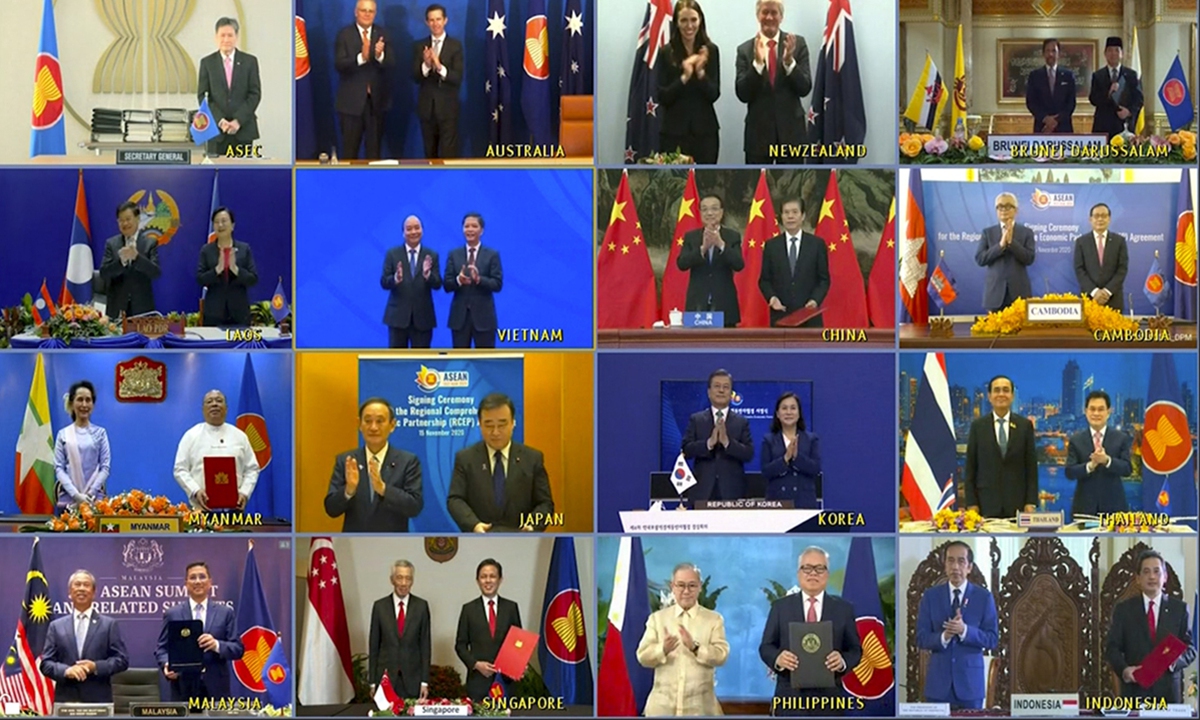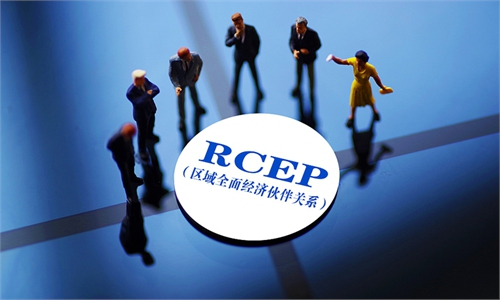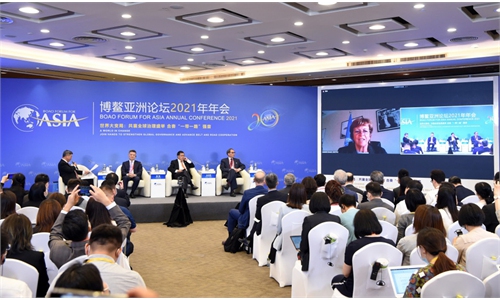
This image made from a teleconference provided by the Vietnam News Agency (VNA) shows the leaders and trade ministers of 15 Regional Comprehensive Economic Partnership (RCEP) countries pose for a virtual group photo in Hanoi, Vietnam. File photo: AP
Southeast Asian businesses are enthusiastic participants at the China International Import Expo (CIIE), but they are in particularly high spirits at this year's event, which kicked off on Thursday in Shanghai.
On the eve of the opening ceremony of the 4th CIIE, the Ministry of Commerce said in a late-night statement on Wednesday that after ten members deposited the instrument of ratification with the ASEAN Secretary-General, the Regional Comprehensive Economic Partnership (RCEP), the world's biggest trade pact, will take effect on January 1, 2022 as agreed upon.
The announcement was well received by participants at the CIIE. For Lao Three Six Manor Trade Export-Import SOLE Co, a third-time attendee, this year's event is particularly inspiring.
"It is hoped that the RCEP can help lower tariffs among the members, promote cooperation in specialty products between countries, and further contribute to the economic development of Laos," Ran Manjun, sales manager of the Laos-based tea company, told the Global Times on Thursday.
The company's tea is sold to China, Vietnam, Thailand, Singapore, Europe and the US, with an annual export volume of 2,000 kilograms. "We hope to achieve cumulative sales of 10 million yuan ($1.56 million)," she said.
The CIIE-RCEP duo is expected to serve as a tailwind for trade between China and ASEAN. Among the ten members that have already ratified the deal, six are ASEAN members, including Laos and Thailand. The other four are China, New Zealand, Japan and Australia.
In the coming years, the TCP Group, one of the leading food and beverage companies in Thailand, expects to see significant benefits accrue to the business community as the RCEP gradually takes shape and drives even deeper economic integration among its members, including China and Thailand.
"The scale of China-Thailand trade and investment has been expanding rapidly, and the launch of the RCEP, the largest free trade pact in history, will increase the momentum behind the development of our two countries' comprehensive strategic partnership," Saravoot Yoovidhya, CEO of the TCP Group, told the Global Times on Thursday.
"We also expect to see the RCEP help play a positive role in mitigating the impact of COVID-19 on regional economies and setting the stage for businesses to benefit from a more rapid post-pandemic recovery," he added.
But even before the RCEP takes effect next year, trade between China and ASEAN countries are already increasing rapidly. In the first nine months of the year, China's trade with ASEAN rallied 21.1 percent year-on-year to 4.08 trillion yuan, accounting for 14.4 percent of China's total foreign trade, Chinese customs data showed.
Major trade shows such as the CIIE helped greatly by introducing products from ASEAN and other regions to the Chinese market.
Through the CIIE platform, Thai shrimp, durians, mangosteens, longans and rice, as well as Thai desserts and other high-quality Chia Tai foods exhibited at the CIEE in the past, have entered the Chinese market through various channels and received warm feedback from Chinese consumers, said Xue Zengyi, CP Group Agro-industry and Food Business China Area.
"In the future, the CP Group will not only introduce premium products from Thailand, but also those from around the world, to the Chinese market to meet the needs of Chinese consumers," Xue told the Global Times on Thursday.



